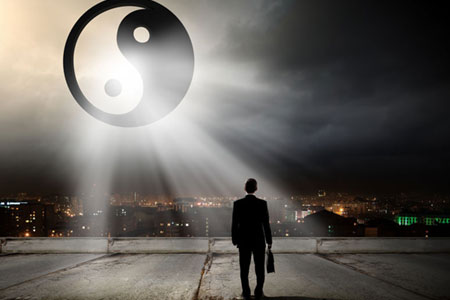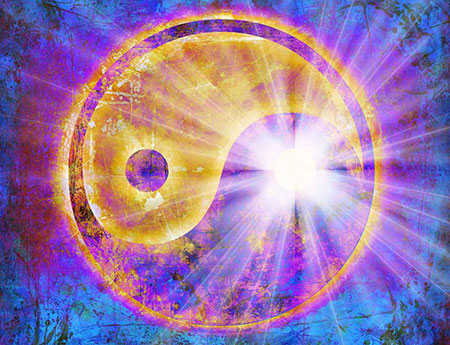law of cause and effect
What To Believe When You Come Undone
 So much of the typical human belief system is actually in direct opposition to the concepts of spiritual law. Let’s take the idiom “Life is too short,” for example. This saying is used to essentially suggest or convince oneself or another that we don’t live long…so just live for the now and just do what’s desirable regardless of the consequences. Well, wrong!
So much of the typical human belief system is actually in direct opposition to the concepts of spiritual law. Let’s take the idiom “Life is too short,” for example. This saying is used to essentially suggest or convince oneself or another that we don’t live long…so just live for the now and just do what’s desirable regardless of the consequences. Well, wrong!
The soul’s journey is quite a long one. We reincarnate through many centuries of lifetimes, until our souls have completely evolved, returning to each new life with lessons to learn based on beliefs, karma and decisions made in our prior lives.
For example, a slave master born might return in his next life as a slave, to face his karma and endure what it’s like to be treated as such, and ultimately understand why it’s wrong. So, in reality, life is ‘too long.’ Every action has a reaction – an energetic effect. Thus, we need to be cognizant and conscientious of all that we say and do in this life, and not just engage or divulge in whatever we please, because of a physically limited life span.
That same theory of misunderstandings and contradictions between spiritual concepts and human beliefs, more detrimentally applies to life struggles and emotional well-being. How many times have you prematurely mourned a relationship…then wound up reuniting with your partner? Or maybe you lost your favorite job and felt hopelessly valueless and depleted, foreseeing eternal darkness, only to find your dream job shortly after? Moments, days, weeks, months, years, where you either take on a defeatist attitude, and suffer, or become a control freak and try to take matters into your own hands. Thinking you are, but not trusting that you are not, the wizard behind the curtain?
Escaping Karma
 Karma is often one of the most misunderstood spiritual experiences that we have as humans. People will often use the word ‘karma’ to represent something punitive, or to point out that another person will “get what’s coming to them.”
Karma is often one of the most misunderstood spiritual experiences that we have as humans. People will often use the word ‘karma’ to represent something punitive, or to point out that another person will “get what’s coming to them.”
But looking at karma through the lens of retribution is almost the opposite of the reason why karma actually exists. In fact, when we hold a perspective about karma that is punitive, we tend to create some sticky karma for ourselves in the process.
Karma is in truth an expression of the self-correcting Universe, reflecting its intelligent, loving design. The goal of karma is to expand a person’s awareness of love, joy, and serenity. Karma simply means that whatever we give out, comes back to us multiplied.
The concept of “karma is going to get that person,” is often directly associated with personal vendetta. Therefore, so many spiritual teachers throughout history talked about forgiveness and loving our enemies. When we focus on karma “getting” the other person, we tend to bring about harsh justice for ourselves.
It is also important to understand that the karma that other people experience is not proportional to how offended we are. The goal of karma is not to ‘make’ other people feel the way that we felt when we were offended.
The Universal Law Of Karma
 Karma is a universal spiritual law, the same way that gravity is a law of nature or physics. The Law of Karma basically states that ‘as you sow, shall you reap.’ Karma is therefore the spiritual principle of ‘cause and effect.’ For every action there is an equal reaction, or ripple effect.
Karma is a universal spiritual law, the same way that gravity is a law of nature or physics. The Law of Karma basically states that ‘as you sow, shall you reap.’ Karma is therefore the spiritual principle of ‘cause and effect.’ For every action there is an equal reaction, or ripple effect.
Karma is also what keeps everything in the Universe in balance. The Chinese symbol of Yin and Yang perfectly illustrates this process of ‘karmic balancing.’ It shows how all the positive and negative forces in the universe balance each other out, because karma equalizes the energy that flows through everything.
Every single action that we take in life is therefore like a spiritual seed we plant. Some of the seeds will sprout quickly, while others may take lifetimes to come to fruition. However long it may take, one thing is for sure, in time every seed we sow will germinate… and we will eventually have to face the result of all our actions and choices.
Karma is therefore an endless chain of actions and reactions, which binds every soul to their good and bad deeds. The soul, born into a physical body, is constantly acting to bring about the results of activity from one life to the next. We choose to act in a certain way, and then become involved with the reactions or consequences of each chosen action.
After giving up one physical body, we eventually enter into another, and we mostly forget everything about that previous life. In this way the soul reaps the results of his actions, from lifetime to lifetime. Everything that happens in our lives is nothing but the reaction of past activities.
Choosing Peace Over Conflict
 There will always be moments in life when we have to choose between peace or conflict. This was the case for me just yesterday.
There will always be moments in life when we have to choose between peace or conflict. This was the case for me just yesterday.
About half an hour prior to the incident, I had taken my dogs for a walk in the countryside surrounding my home. Adjacent to the pathway we walked, there were a few men working in the field. I didn’t actually see them, but their car was parked up close by, and what I assumed was their lunch had been perched in a plastic bag in one of the olive trees.
Knowing that the curiosity of my dogs would be stirred by that bag of food, I kept a beady eye on them, particularly the two that were off-leash. Thankfully, the only thing my youngest dog appeared to be interested in was someone else’s medium-sized dog that was also in the vicinity of the workman’s feast. I’d assumed that this dog was with the workers, but on taking the same route this morning, I realized that he belongs to the actual farm there.
So, yesterday, after the walk, I was outside my house, when the worker’s car pulled up to my fence. Two young men got out and one of them asked, “Why did you allow your dogs to steal the old man’s bocadillo (a sandwich made with Spanish bread)?”
“They didn’t steal it?” I replied.
“Oh, but they did,” he said. “My friend here saw it happen!”
I took a moment and thought about how to handle this situation in the most peaceful and spiritually aware manner. It wasn’t such a big deal, but obviously the old man felt that he had been robbed.
Taking On Karmic Debt
 If a person broke into my home and committed a robbery, the police would definitely be called, charges would be laid, and the ramifications of that particular act would remain in the capable hands of the legal system. Since this is a willful, intentional act, that individual deserves whatever consequences would be dished out to him.
If a person broke into my home and committed a robbery, the police would definitely be called, charges would be laid, and the ramifications of that particular act would remain in the capable hands of the legal system. Since this is a willful, intentional act, that individual deserves whatever consequences would be dished out to him.
His ongoing problem, which he may not be aware of, is that although he would be paying his penalty, perhaps with a prison sentence or something similar, he still would be accumulating also a karmic debt. This he most likely would not even consider at the time.
Karmic debts do not disappear. One must always account for them at some given time. It is a universal law that never wavers.
You would most assuredly agree with me that this kind of crime is a clear one that is easily interpreted. A person wanted what was not his. However, this did not deter him. He knowingly, on a conscience level, sought to commit an unlawful act, despite the grief and trauma it might cause his victim. His wrongdoing is plain to see and, despite restitution or an apology, profound damage was done to the owner of the property he stole.
But suppose another character committed a different kind of crime. One that was not so blatantly noticeable, however, it caused the same emotional harm to another, or possibly even worse. The person might knowingly and willingly create a scenario that leads to a series of events that becomes extremely traumatic or detrimental to another.

 Psychics, mediums, intuitives and diviners all have their own abilities, talents, skills and unique style in which they work. Be that as it may, we are all still working within the parameters of Quantum Physics and the Laws of Probability. That means the spiritual or metaphysical answers we seek for our physical existence all exist within a tight, coupled framework of probabilities. And it is neither
Psychics, mediums, intuitives and diviners all have their own abilities, talents, skills and unique style in which they work. Be that as it may, we are all still working within the parameters of Quantum Physics and the Laws of Probability. That means the spiritual or metaphysical answers we seek for our physical existence all exist within a tight, coupled framework of probabilities. And it is neither